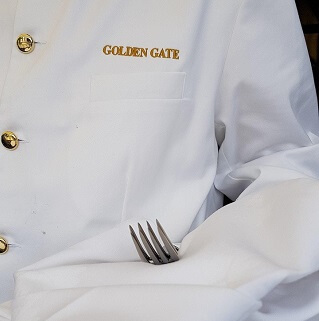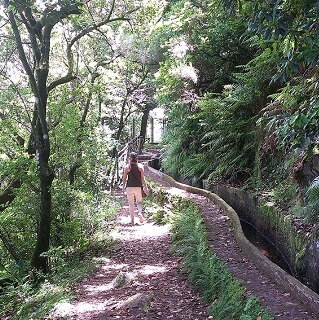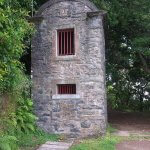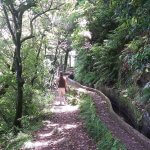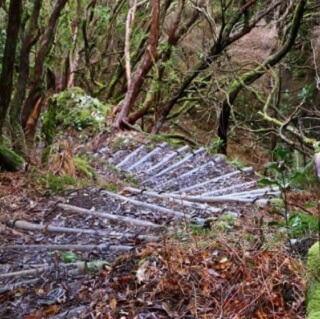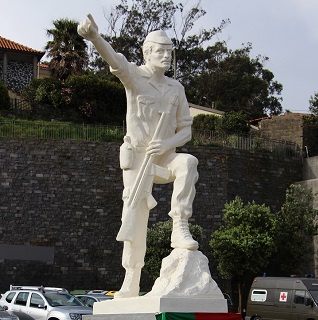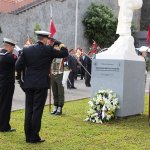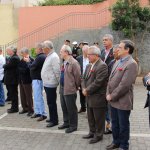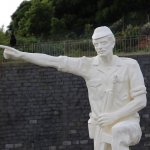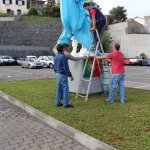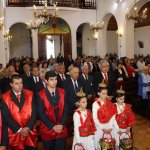

When, on October 24th 1884 João Sauvair da Camara, mayor of Funchal, set the first stone of the teatro D. Maria Pia he was far from imagining that, 130 years and four names later the building designed by Porto architect Tomas Augusto Soler would be what it is today.
Even if the present Teatro Municipal Baltazar Dias is a building that may even go unnoticed in an increasingly busy city, the truth is that its (also) increasingly busy agenda has taken hundreds of people to its shows, plays, exhibits or conferences.
The theatre has had a new course set for it. And a dynamic that, more than showing the more visible facet of the charismatic hall, shows what we don’t see every day, and what we didn’t even imagine being able to see, like the back screens that can be risen and lowered onto the stage, with paintings signed by artists like Danilo Gouveia. Or the indescribable catacombs, with its stone walls under the stage, allow for its magnificent acoustics. Walking around there takes me back to a difficult to imagine 19th century…
I breathed history while walking through the theatre stories. I imagined its first spectators, on March 11th 1888, all dressed up for its first show, the zarzuela “Las Dos Princesas”, by the Spanish company of Jose Zamorano, from the Canaries.
I walked around the dressing rooms, by the one that now carries the name of Eunice Munoz, where we find the honour book signed by all the great names that went through it more recently. I have read wall – walls – where those that have passed through it through decades have left their names, I went up narrow wooden stairs, and I made it to the net.
This is a round room surrounding the structure from which the magnificent chandelier hangs on the theatre main hall. There are windows though which the sunlight flows in from all sides, a game of light that disturbs me when I return to the place where the back screens seem to patiently await the next time they will descend.
I continue the visit. Without getting the coincidence, I find that the stalls closest to the stage are reserved, in some shows, to blind people and one escort, so they can feel the music being played. A symbol and homage – as Baltazar Dias, a poet and playwright, was blind.
I want to come here more often, to feel the history and breathe culture. Take the time – it’s worth it – and go visit the most iconic of our show rooms. Every Tuesday at 10h00.











